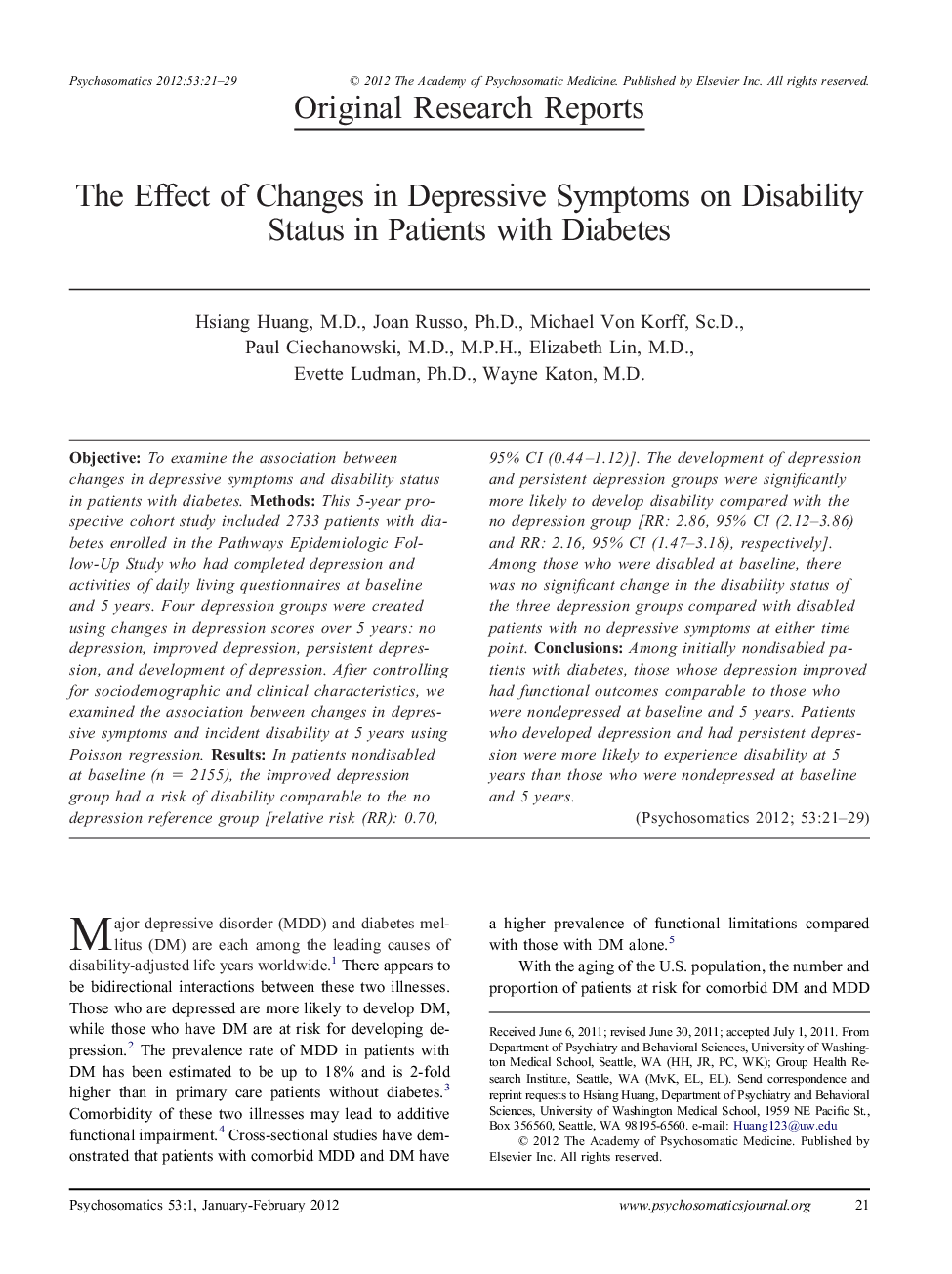| Article ID | Journal | Published Year | Pages | File Type |
|---|---|---|---|---|
| 339087 | Psychosomatics | 2012 | 9 Pages |
ObjectiveTo examine the association between changes in depressive symptoms and disability status in patients with diabetes.MethodsThis 5-year prospective cohort study included 2733 patients with diabetes enrolled in the Pathways Epidemiologic Follow-Up Study who had completed depression and activities of daily living questionnaires at baseline and 5 years. Four depression groups were created using changes in depression scores over 5 years: no depression, improved depression, persistent depression, and development of depression. After controlling for sociodemographic and clinical characteristics, we examined the association between changes in depressive symptoms and incident disability at 5 years using Poisson regression.ResultsIn patients nondisabled at baseline (n = 2155), the improved depression group had a risk of disability comparable to the no depression reference group [relative risk (RR): 0.70, 95% CI (0.44–1.12)]. The development of depression and persistent depression groups were significantly more likely to develop disability compared with the no depression group [RR: 2.86, 95% CI (2.12–3.86) and RR: 2.16, 95% CI (1.47–3.18), respectively]. Among those who were disabled at baseline, there was no significant change in the disability status of the three depression groups compared with disabled patients with no depressive symptoms at either time point.ConclusionsAmong initially nondisabled patients with diabetes, those whose depression improved had functional outcomes comparable to those who were nondepressed at baseline and 5 years. Patients who developed depression and had persistent depression were more likely to experience disability at 5 years than those who were nondepressed at baseline and 5 years.
